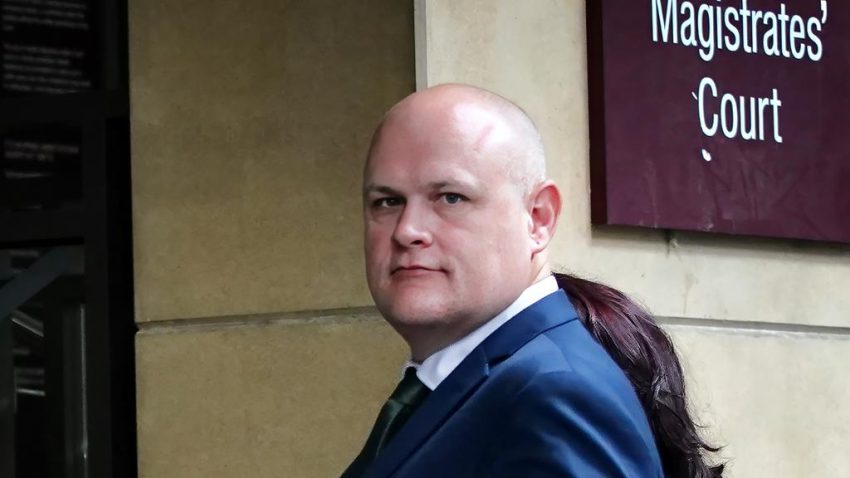An Australian LE agent is accused of illicitly transferring 81.62 Bitcoin, valued at $4.2 million, from a seized Trezor wallet during a 2019 drug raid. The National Anti-Corruption Commission (NACC) and cybercrime investigations allege Wheatley’s involvement through digital asset tracing, while he denies the charges, insisting on circumstantial evidence.
Key Insights
- The National Anti-Corruption Commission (NACC) of Australia believes Federal Officer William Wheatley transferred 81.62 BTC from a Trezor hardware wallet found during a drug raid.
- Digital asset tracing software to link the Bitcoin transfer to Wheatley’s identity
- In 2019, during a drug raid, Australian police seized the hardware wallet but waited approximately three weeks for court permission to access it: The BTC was missing.
- Initially, it was suspected that a crime syndicate was associated with the theft.
- The Bitcoin, originally valued at $309,000 during the raid, is now estimated to be around $4.2 million.
- Advanced digital asset tracing tools indicated a police officer’s involvement in the theft by 2021.
- Wheatley is charged with theft, handling property suspected to be connected to crime, and exploiting his federal position for personal gain.
- The trial might last up to three months, with Wheatley’s defense arguing the case is based on circumstantial evidence.
According to an Aus news website, an individual by the name of William Wheatley, an Australian Federal Police Officer, is being accused of exploiting his position by illicitly transferring a significant amount of crypto, which was found to be around 81.62 Bitcoin, valued at around $4.2 million at current rates, from a Trezor hardware wallet seized whilst doing a drug raid back in 2019.
Wheatley’s Charges of Theft
Charged with theft, for handling property suspected of being connected to crime, and using federal intel for his advantage, Wheatley’s legal allegations began in December 2022. These charges were brought against him by the Australian Commission for Law Enforcement Integrity. The start of these allegations is a January 2019 investigation into narcotics and steroid trafficking, where Wheatley is accused of claiming 81.616 Bitcoin from a cryptocurrency wallet, for himself.
The Raid Where It All Started
Detective Sergeant Deon Achtypis of the Cyber Crime Squad provided a testimony describing his involvement after a raid on a home in Hoppers Crossing on January 25, 2019, as part of Operation Viridian. The operation was a collaborative effort between Victoria Police and the Australian Federal Police, under the Icarus Taskforce.
Detective Achtypis stated, “Detective Sergeant Mark Newlan informed me they were at an address they believed was an illegal steroid dealer.” The raid found not only steroids but also led the team to an active computer, which gave evidence of drug transactions facilitated through Bitcoin.
The discovery of a Trezor-brand hardware cryptocurrency wallet became an important piece of evidence, handed over to the Icarus detectives. It was three weeks later, Achtypis told the court, that a magistrate green-lit the taskforce’s request to access the wallet. “I gained access on February 14 and found that 81.616 Bitcoin had been moved from the wallet shortly after 5 pm on January 29 – four days after the device was seized,” he revealed.
The detective emphasized the importance of the “seed phrase,” a series of at least 12 random words, crucial for accessing the wallet. The initial valuation of the stolen Bitcoin was about $450,000, a figure that has since grown to more than $6.3 million.
Every Action Has its Consequences
A turn of events in the investigation came with the introduction of advanced tracing tools in 2021, showing the involvement of a police officer in the theft. Detective Achtypis’s investigation led to a startling revelation: “I learned one of the ‘IP addresses of relevance’ was linked to the then-AFP headquarters in Melbourne and I could not conceive of any valid business reason why that would be the case.”
Essentially, Officer William did not keep his OpSec in check; here’s a guide for you.
Craig Gillespie, a cryptocurrency investigator based in Wales, corroborated the suspicion with evidence of transactions traced back to Wheatley’s bank account. AFP officer Jesse Wyatt, recalling the day of the search, mentioned his communication with Wheatley, seeking his expertise on the found device. “Hey mate, you ever seen one of these? Maybe a cryptocurrency thing,” Wyatt texted, an interaction shared in court.
Despite the evidence, Wheatley’s defense, led by Luke Barker, remains resolute. Barker stated that the case against Wheatley is built on circumstantial evidence, challenging the alleged connections drawn by the prosecution. As Magistrate Malcolm Thomas presides over the hearing, the courtroom drama continues to unfold, with each testimony adding layers to the complex narrative of crime, technology, and alleged betrayal within the police force.

